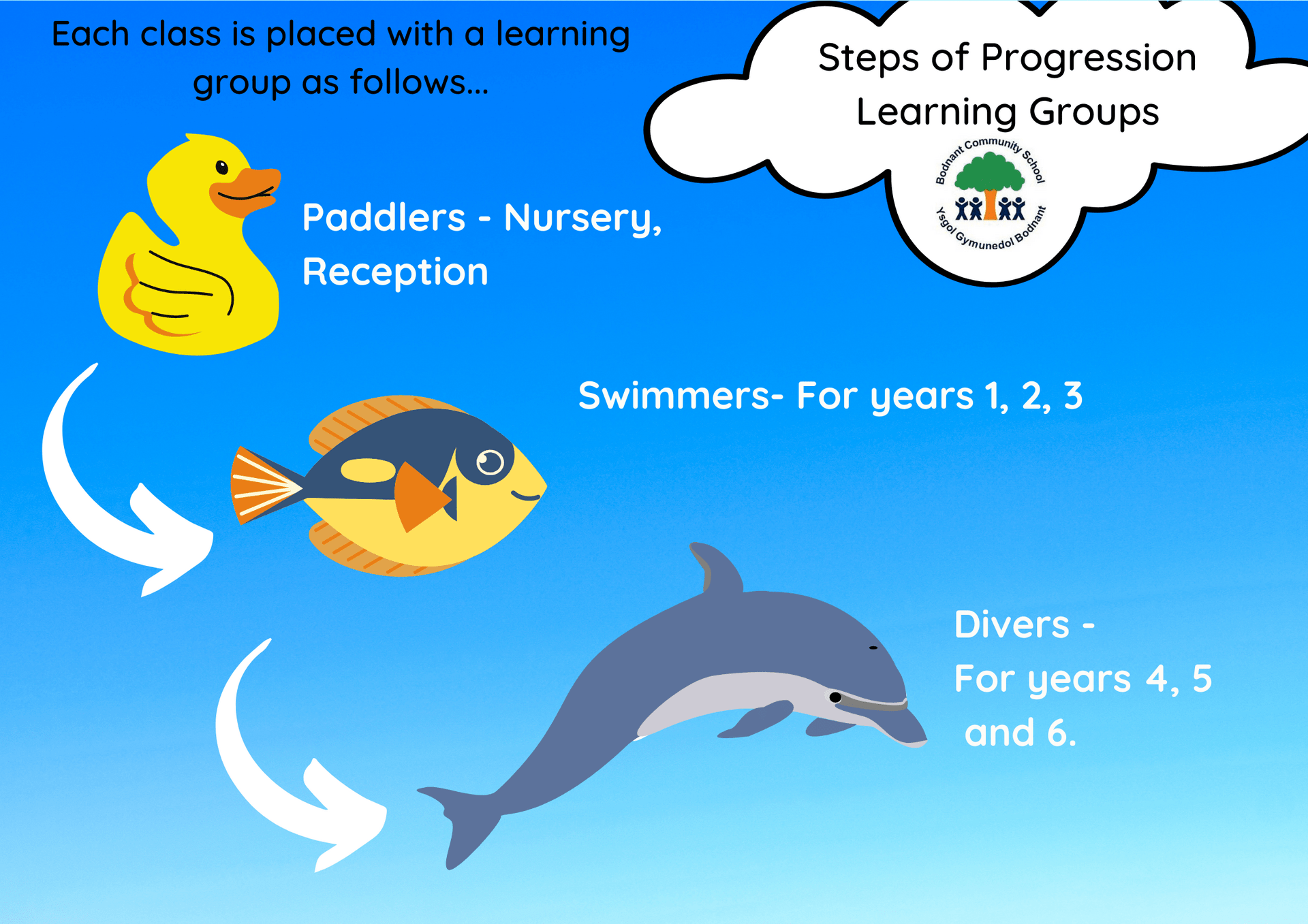New Curriculum
Parent information about changes to your child's curriculum.
The world is changing. There are lots of new challenges that will need new technology and new ideas. The Welsh Government wants your child to have the knowledge, skills and experiences they will need to succeed.
Professor Donaldson and his team had meetings across Wales for schools to have a say. They had meetings with teachers, headteachers, school managers, staff and professionals. Between March and December
2014 they visited around 60 schools including:
● nursery schools
● primary schools
● secondary schools
● special schools
● and others.
They talked to children and young people, parents and carers, business and community groups and others across Wales. They looked at Estyn reports, Welsh Government policies and other reports
Children and young people told him they thought the curriculum was already out-of-date especially in technology, software and digital skills. They wanted a greater focus on life skills, personal confidence, basic skills, work skills, career advice and health and well-being. They also wanted lessons to be fun, interesting and not something that were there just to pass assessments or get qualifications.
Please take a look at this video - https://www.youtube.com/watch?v=9U0fsT0gH7U
Please see more information here - successful-futures.pdf (gov.wales)
Children in Wales will be studying a new curriculum from September 2022.
Children who attend a school in Wales follow a different curriculum from the National Curriculum used in England – and that curriculum is currently undergoing a significant shake-up.
The Curriculum for Wales is due to be rolled out from September 2022, with primary schools being the first to switch to the new curriculum.
The curriculum is being reformed in order to raise standards, reduce the attainment gap between students, and equip young people to lead ‘fulfilling personal, civic and professional lives’ in modern society.
It aims to prepare children to thrive in a future where digital skills, adaptability and creativity are crucial, and that is rooted in Welsh values and culture.
The new Curriculum for Wales will be followed by children from the ages of three to 16. There won’t be separate curriculums for primary and secondary schools; rather, it will be a continuum across all stages.
The curriculum will be statutory for all maintained schools in Wales. Non-maintained schools won’t have to follow the curriculum, but will have to provide a ‘broad and balanced’ teaching programme that incorporates the six areas of learning set out in the new curriculum.
The Curriculum for Wales will have two hierarchies:
- The national-level curriculum will be defined by the Welsh government.
- The school-level curriculum will follow the national-level curriculum, but will be developed and planned by teachers in individual schools and in clusters.
It won’t be biased towards either knowledge or skills, but will allow schools to provide a balance of knowledge, skills and experiences.
The four purposes of the Curriculum
The new Curriculum for Wales has been developed to fulfil four key purposes. It aims to produce children who are, or will become:
- Ambitious, capable learners
- Healthy, confident individuals
- Enterprising, creative contributors
- Ethical, informed citizens
Areas of learning
The Curriculum for Wales will have six areas of learning.
1. Expressive arts incorporating art, dance, drama, film and digital media, and music. It will encourage creativity and critical thinking, and include performance.
2. Humanities incorporating geography, history, RE, business studies and social studies. It will be based on human experiences and will also cover Welsh culture.
3. Health and wellbeing: this covers the physical, psychological, emotional and social aspects of life, helping students make informed decisions about their health and wellbeing and learn how to manage social influences. It will include PE.
4. Science and technology incorporating biology, chemistry, physics, computer science, and design and technology.
5. Mathematics and numeracy: in the early years, this will involve learning through play. In later stages, it will include working both independently and collaboratively with others.
6. Languages, literacy and communication: this will include Welsh and English, literature and international languages. Welsh Language teaching will still be compulsory (as an additional language for children who don’t use Welsh as their first language.
In addition, literacy, numeracy and digital skills will be embedded throughout all curriculum areas.










